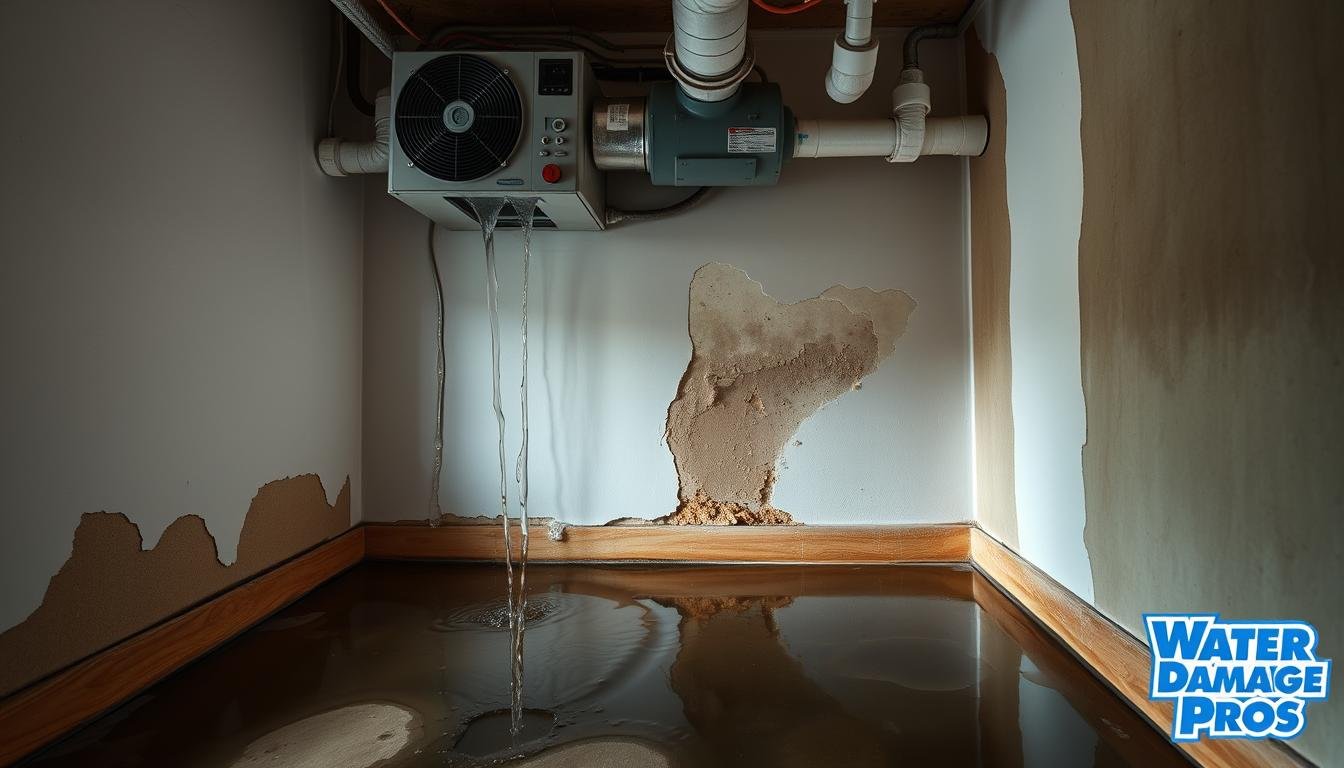How HVAC Systems Contribute to Water Damage and What to Do About It
Did you know your air conditioner can produce up to 50 gallons of water daily in humid places1? That’s a lot of water that can harm your home if your HVAC isn’t kept up. HVAC systems often cause water damage, like broken drain pans, clogged lines, and bad pumps1. HVAC water damage can cause big problems, like wet carpets, warped floors, and mold1. But, there’s good news. Simple steps like changing your HVAC filter every month and cleaning the condenser can stop these issues1. Key Takeaways HVAC systems can produce a lot of condensation water daily, leading to water damage problems. Common HVAC-related water damage issues include clogged drains, cracked pans, and faulty pumps. HVAC water damage can result in structural problems and mold growth if left unaddressed. Regular HVAC maintenance, such as filter changes and condenser cleaning, can help prevent water damage. Understanding your insurance policy’s coverage for HVAC-related water damage is crucial. Understanding the Sources of HVAC Water Damage Air conditioners and high-efficiency furnaces remove moisture from the air. This leads to condensation, which drips down the indoor coil into a drain pan. The water then exits the home through a drain line, usually made of PVC pipe2. High-efficiency air conditioners can produce between 20 to 50 gallons of water daily through this process2. Condensation and Drainage The more efficient your AC, the more condensation it will produce2. Newer, high-efficiency air conditioners have bigger coils and move air more slowly. This allows more moisture to be removed2. It’s vital to maintain the HVAC system’s condensation drainage system to avoid water damage3. Regular HVAC maintenance can extend the unit’s life and save on heating or cooling costs3. Changing HVAC filters monthly with HEPA filters can prevent the unit from overworking and freezing3. Keeping the condenser clean by removing dirt and debris annually ensures efficient airflow and prevents water damage3. Flushing the AC drain line with an algaecide once or twice a year can prevent mold or algae3. Installing a condensation pump and safety float switch can manage excess water flow and prevent overflow3. Regular inspections and maintenance by professionals ensure the system works right and catch potential issues3. Understanding HVAC water damage sources, like condensation and drainage, helps homeowners and HVAC pros prevent costly damage. They can also keep the HVAC system healthy and efficient for a long time24. Causes of HVAC Water Damage Preventative Measures Clogged drain lines Regular flushing of drain lines with algaecide Damaged or corroded drain pans Inspection and replacement of drain pans if necessary Faulty condensate pumps Installation of safety float switches to prevent overflow Severe weather and flooding Routine HVAC maintenance and professional inspections “Proper maintenance and care of the HVAC system’s condensation drainage system is crucial to prevent water damage.” hvac water damage Common Causes of HVAC Leaks and Flooding HVAC systems can suffer from water damage and leaks for several reasons. Often, water in the AC’s drain pan spills over, causing flooding and damage3. This usually happens when the drain line gets clogged, stopping water from draining fast enough3. Also, air conditioners leak water if the drain pan has holes or cracks, often due to rust and corrosion3. To avoid HVAC water damage, regular maintenance is key3. Installing a float switch can automatically turn off the unit when the water level gets too high3. This is especially helpful for high-efficiency systems that produce more condensation3. It’s also important to regularly check and maintain the overflow drain pan to catch leaks early3. If floods damage HVAC systems, it’s best to get a professional to assess and restore them5. HVAC equipment isn’t made to work underwater, and floodwaters can harm many parts5. A skilled HVAC technician should inspect the system, clean it, and decide if repairs or replacements are needed5. Floodwater is very dirty, filled with dirt, debris, bacteria, fungi, raw sewage, and gasoline6. While it’s possible to fix flooded HVAC systems, it’s wise to hire experts for cleaning and sanitizing6. It’s also important to weigh the cost of fixing versus replacing the system, especially if it’s almost time to replace it6. Understanding why HVAC systems get damaged by water and taking steps to protect them can help. Homeowners can avoid expensive water damage and keep their heating and cooling systems working well for a long time. Conclusion Stopping HVAC water damage is key to avoid expensive fixes and mold. Regular maintenance helps a lot. This includes changing air filters, cleaning the condenser, and keeping the condensation drain line clear7. If you face HVAC water damage, act fast. Think about getting help from water damage restoration services like Water Damage Pros in San Bernardino (951-903-5429). They can help fix the damage and stop more problems89. Handling HVAC water damage insurance claims needs care. You must understand the damage well. Work closely with your insurance to get a fair deal. Keep detailed records and photos to support your claim89. FAQ What are the common causes of HVAC water damage? HVAC water damage often comes from a clogged drain. It can also happen if the evaporator coils freeze. Or if the pipes aren’t connected right. How can I prevent HVAC water damage? To stop HVAC water damage, take care of your system yearly. Change the filter often, clean the condenser, and keep the drain line clear. Getting a pro to check and fix your system is a good idea too. How much water can an air conditioner produce through condensation? An air conditioner can make 20 to 50 gallons of water a day. The more efficient it is, the more water it will make. What can happen if the HVAC drain line gets clogged? If the drain line clogs, water can spill over. This can cause flooding and water damage. How can I detect and prevent HVAC leaks? Use a float switch to stop the unit when the water level is too high. This helps with high-efficiency systems that make more water. Regular checks and maintenance can find and fix leaks before they cause …
Continue reading “How HVAC Systems Contribute to Water Damage and What to Do About It”


